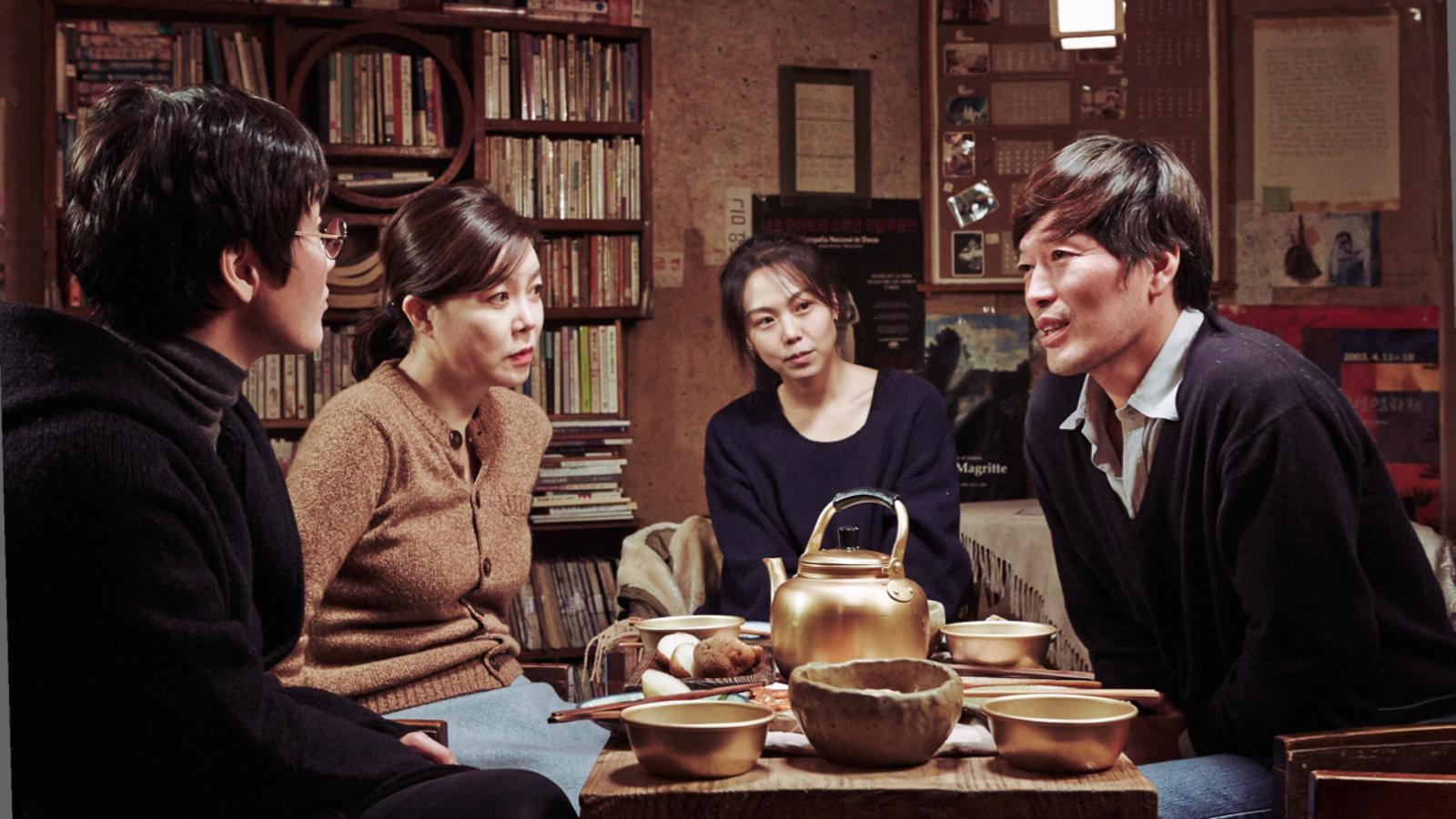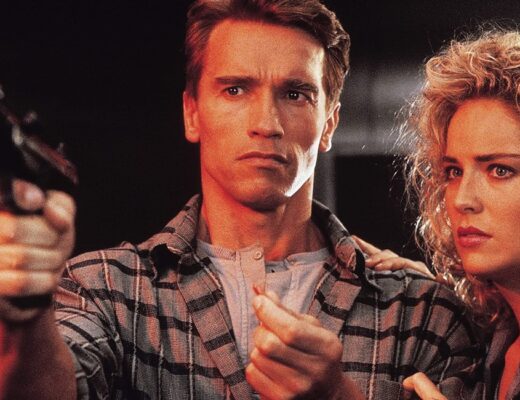Distilled down to a one-sentence summary, the calmly melancholic Right Now, Wrong Then is the very essence of a Hong Sang-soo film: A bibulous director pursues an alluring young woman, and things go awry. With its sad, voluble characters drowning their problems in soju; its laconic narrative; those exacting zooms; the conversations between despondent men and women over coffee; the swells of ironically triumphant music; and the proleptic chit-chat — this film showcases all of Hong’s thematic and aesthetic affinities. And yet, in its rigidly bifurcated structure, Right Now, Wrong Then is also something of an anomaly in Hong’s oeuvre.
While dualities and dichotomies here are fairly common in Hong’s work, they aren’t usually employed so literally. (2002’s On the Occasion of Remembering the Turning Gate has a similar structure, but is not nearly as precise in its reiteration of the same scenarios and outcomes.) Right Now, Wrong Then is severe in its juxtapositions, its two halves starkly similar, yet profoundly different. The film presents two perspectives: first, that of esteemed filmmaker Ham Cheon-soo (Jeong Jae-young), and then, the POV of the object of Cheon-soo’s affections, Yoon Hee-jeong (Kim Min-hee, who became Hong’s mistress during the filming of Right Now, Wrong Then). Hee-jeong is an aspiring painter, and her genuineness, and maladroit demeanor, make Cheon-soo fall for her.
Showcases all of Hong’s thematic and aesthetic affinities.
The two halves of Right Now, Wrong Then exhibit only slight variations: There are some differences in dialogue, and some scenes run longer, or shorter, depending on the badinage. There’s a dreamy, oneiric quality to the repetitions, and the minute discrepancies are almost unsettling in their ability to disrupt what should be familiar. Hong treats relationships as stories to be told, each love written by two authors with distinctive styles and desires; the caustic power, and corrosiveness, of honesty, is inherent to all stories, all relationships — and here, honesty helps as much as it hurts.
Hong moves his film along at a leisurely pace, as if the characters are reluctant to reach some inevitable conclusion — as if Hong himself is. And while the director may tend to favor the desperate and the lonely, he has the heart of a hopeless romantic. In the end, Hee-jeong sits, smiling and alone, in a movie theater, watching one of Cheon-soo’s films. She takes solace in the flicker of the screen, surrounded by a sea of empty red seats. Outside, snow falls serenely as Cheon-soo traipses off. Hong suggests that love sometimes does exist — in movies, in real life, in its own time.







